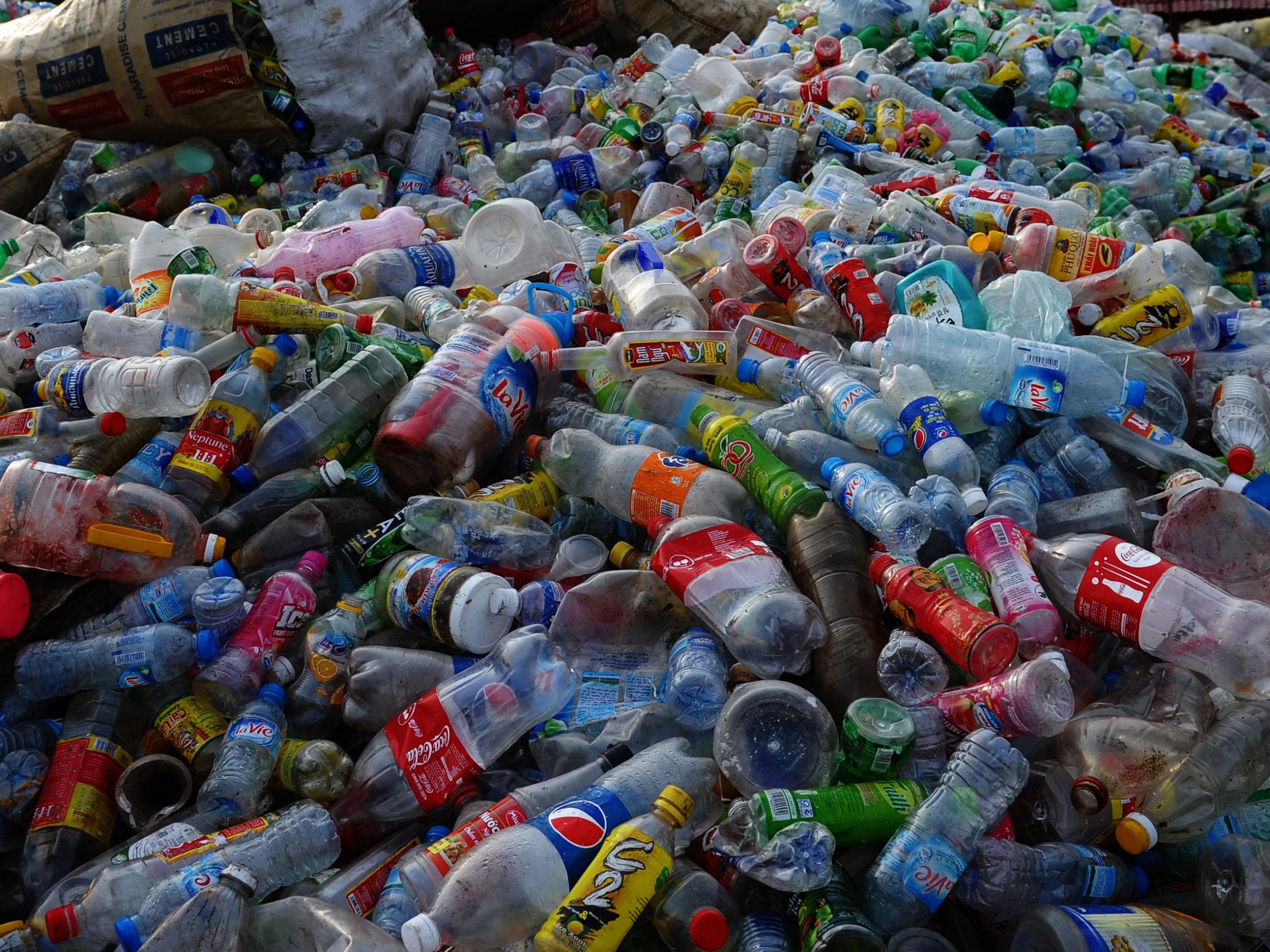Bacteria able to eat plastic bottles discovered by scientists
Experts have asked whether the new find could be an answer to managing plastic waste in the environment

Your support helps us to tell the story
From reproductive rights to climate change to Big Tech, The Independent is on the ground when the story is developing. Whether it's investigating the financials of Elon Musk's pro-Trump PAC or producing our latest documentary, 'The A Word', which shines a light on the American women fighting for reproductive rights, we know how important it is to parse out the facts from the messaging.
At such a critical moment in US history, we need reporters on the ground. Your donation allows us to keep sending journalists to speak to both sides of the story.
The Independent is trusted by Americans across the entire political spectrum. And unlike many other quality news outlets, we choose not to lock Americans out of our reporting and analysis with paywalls. We believe quality journalism should be available to everyone, paid for by those who can afford it.
Your support makes all the difference.A new species of bacteria able to eat one of the world's most common plastics has been discovered by Japanese scientists.
Polyethylene terephthalate, or PET, is the plastic commonly found in disposable water bottles. Lightweight, colourless and strong it is widely used, with 50 million tonnes produced globally every year.
Published in the journal Science, the discovery by researchers from Kyoto Institute of Technology and Keio University, could be a breakthrough in managing the plastic, which is notoriously resistant to being broken down by microbes or biodegradation.
To find the bacteria, a team of researchers collected 250 PET-contaminated samples including sediment, soil and wastewater from a plastic bottle recycling site.
They screened the microbes living on the samples to investigate whether any of them were eating the PET and using it to grow.
They found a consortium of microbes that appeared to break down a PET film, however just one of the bacteria species, named Ideonella sakaiensis, was responsible for PET degradation.
Further tests revealed the bacteria used enzymes to break down the PET, generating an intermediate chemical. The chemical was then taken up by the cell, where it was broken down even further by other enzymes providing the bacteria with carbon and energy to grow.
The research found a community of Ideonella sakaiensis could break down a thin film of PET in just six weeks if kept at a temperature of 29C.
Although previous studies have detected species of fungi able to grow on PET, this is the first time microbes able to consume the substance have ever been discovered.
The revelation has led experts to question whether Ideonella sakaiensis could be the answer to the ever-growing amount of plastic ending up in the environment and damaging the planet.
PET makes up nearly one-sixth of the world’s annual plastic production of 311 million tonnes, however according to the World Economic Forum (WEF) just over half of this is recycled and far less is reused.
In addition, a third of all plastics end up in the environment and 8 million tonnes end up in the ocean every year, the Guardian reports.
However, Tracy Mincer, who studies plastics in the ocean at the Woods Hole Oceanographic Institution in Massachusetts, explains that although the study is impressive it is not immediately clear whether the discovery will help keep plastics out of the ocean or become an alternative to landfill.
Dr Mincer said: "When I think it through, I don't really know where it gets us. I don't see how microbes degrading plastics is any better than putting plastic bottles in a recycling bin so they can be melted down to make new ones."
But he said the research could make it easier to identify other microbes that may have similar PET-degrading capabilities.
"This process could be quite common. Now that we know what we are looking for, we may see these microbes in many areas around the world."
Join our commenting forum
Join thought-provoking conversations, follow other Independent readers and see their replies
Comments